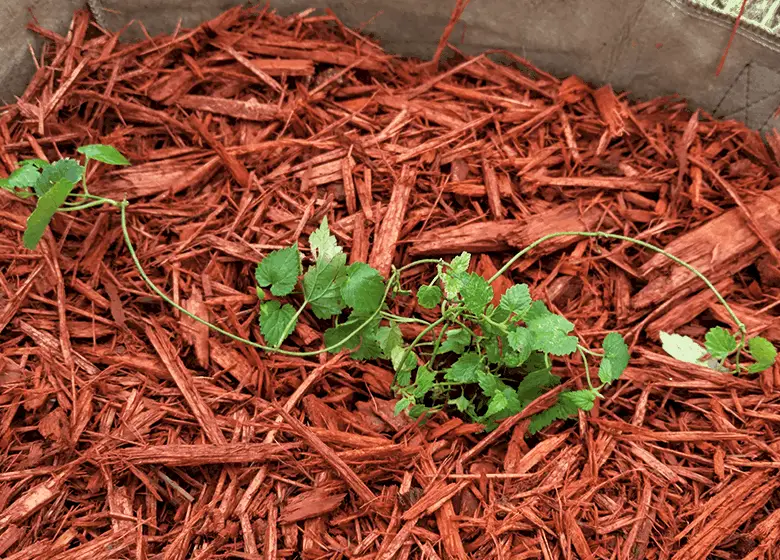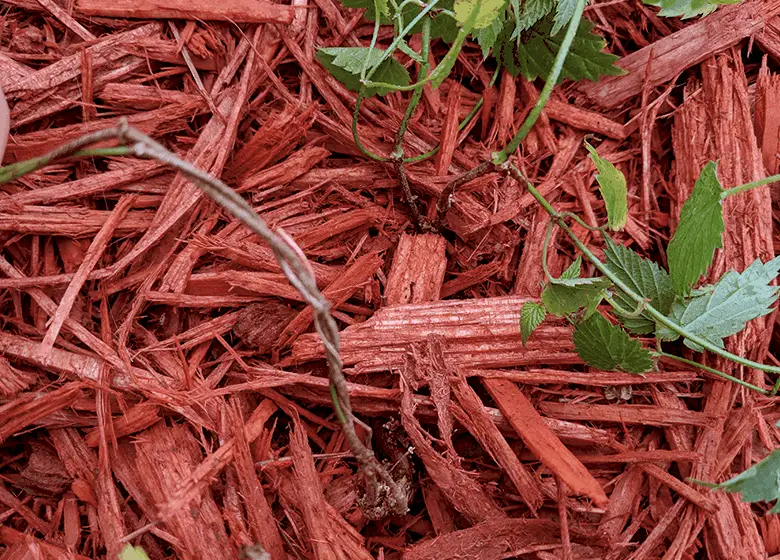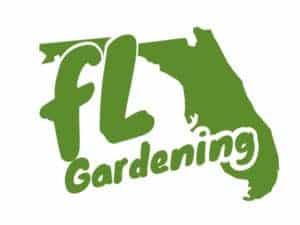Craft beer is exploding in the sunshine state, brewers are getting crazy with these beers, and I love it!
Can you grow hops in Florida? Yes, hops do best in USDA hardiness zones 5 through 9 but will survive outside of that range as well, depending on the variety grown and surrounding conditions.
Hops suffer decreased growth when exposed to sustained temperatures of 90°F. Hops will die back with freezing weather but will set out new leaves as long as the soil temperature doesn’t drop below -20°F, which we have no threat of that here in Florida.
When planting hops, should you get rhizomes or buy started plants? Do they like full sun or part shade? How do you prune them? To find out how to grow hops in Florida continue reading.
When Should I Plant Hops In Florida?
Hops enjoy moderate climates and lots of
According to Florida Hops LLC, Florida’s climate has temperatures nearly year-round in which we can grow hops.
When in Florida, You should plant your hops in the early spring time, after fear of all frost is gone.
- North: March
- Central: February
- South: February
These Dates are just estimates based off of the average temperature of each zone during that time. There is
You can plant at different times if desired but I would avoid planting during the heat of the summer, as well as during
North Florida, freezes will knock your plants back to the ground but it will not kill your hops plant. When temperatures begin to rise it will sprout out new growth.
Established hop plants are very resilient.
Best Hops To Grow In Florida
If you didn’t know there are a lof of different varieties of hops that can be grown. Each one, with the capability to give a beer a unique flavor. Flavor isn’t the only thing that changes from variety to variety.
Some kinds of hops will tolerate higher temperatures than other kinds of hops. According to Lynn, at Great Lake Hops, American varieties are more suited to warmer temperatures than Western Europe varieties. Some examples of American varieties are Cascade, Cashmere, and Chinook.
However, Florida Hops LLC offers a wide variety of hops varieties for sale that will do well in Florida.
- Cascade
- Cashmere
- Centenial
- Chinook
- Comet
- Cluster L-8
- Crystal
- Nugget
- Sorachi Ace
- Tahooma
- Triple Pearl
Where Should I Plant Hops?

Plant hops in full sun, the more sun the better. They will tolerate part shade as well but they will not produce nearly as much.
Not only do hops need full sun but they need something to grow on. Hops are a vining type plant and must be trellised in some way. Hop plants can grow between 12 and 25 feet long.
Commercially, large poles are put into the ground and then some sort of rope is used to create large, 30 foot tall trellises.
At home, I’m planning on using my backyard’s chain link fence to grow them on.
You can try attaching some kind of rope, like hemp cord, to nearby trees or buildings in order to give the hop plants something to grow up.
How To Plant Hops
Hops can be purchased as a rhizome or you can buy already started baby plants.
I purchased transplants because I’ve read mixed reviews on the success of planting rhizomes that were purchased online. Who knows, how they were cared for or when they were picked from the ground.
If you don’t know, a rhizome is basically part of the roots that have the capability to produce new growth.
To ensure the greatest success, rhizomes must be stored properly. They should be moist but not wet and be sealed away from the air. Cooler temperatures, like ones in your refrigerator, are best.
Wrapping rhizomes in wet paper towels and sticking them in a zip lock bag in your fridge is a great way to store them until they are ready to plant.
When planting your rhizome, make sure that it is at least 12 inches deep and that the nodes on the rhizome are pointing up, that is where new growth will sprout from.
If you are like me and don’t want to deal with rhizomes just buy some baby transplants. They will be a little more expensive than the rhizomes but I was alright with that.
I purchased my hop transplants from Florida Hops LLC.
Problems With Growing Hops In Florida
The biggest problem when growing hops in Florida is the amount of sun. It sounds weird, especially since Florida is known as the sunshine state.
Most commercial hops are grown in the North western part of the united states. This part of the country has longer days than us here in Florida. They have days there with 14+ hours of sun. At the summer solstice(Our longest day of the year) we don’t even break 14 hours of sunlight.
Longer days increase yeilds. This is a major problem for commercial hop growers in Florida. They are over coming this with additianl grow lights added to their hop yards.
however, I don’t think this will be a problem for many home growers. I’m not trying to maximize yield in order to increase profits. I’m just trying to grow enough for some home brewing.
How To Prune Hops
Hop plants grow a lot like indeterminate tomato plants do. They send out suckers and begin to grow out of control if not managed properly.
Hops are not actually a vine, they are a bine. The major difference is in how the plant holds it self on things as it grows. Vines wrap them selves on thins with tendrills, like watermelons do. Bines wrapthemselves around things and constrict,like a snake.
If planting rhizomes, your first shoots that come up should actually br trimmed back. They are hollow and their major purpose is to spread and find something to grow on.
You already have a trellis there for your plant, there is no need for it to go searching. I learned this from a video I watched on
She says that the second bines that your hop plant send out will be stronger and produce more hops than the first bines sent out by the plant.
You should only have 3 to 4 main bines coming out of your plant. You should prune all of bines that try to grow from it.

As your hop plant grows, it will send out side shoots, think of these as you would suckers on a tomato plant. It’s basically another plant. It will grow and produce hop while also sending out more suckers.
I think you can see how that would easily get out of control so you must stay on trimming your plant in order to keep it some what contained.
Best Soil For Hops
Hop plants like plenty of water but they don’t like to sit in it. So you need a soil with good drainage as well as plenty of organic material.
If planting directly into your Florida Soil, you should at least add plenty of compost and lay down a thick layer of mulch.
Florida soil has fantastic drainage…it’s almost too good. I’m willing to bet that your soil looks mostly like sand. That’s what mine looks like
For my hop plants I used 15 gallon cloth pots (Check price on Amazon) and I built a soil that I’ve always had pretty good luck with.
- 40% Peat moss (Check price on Amazon)
- 40% Compost (You can get it on Amazon but I’ve found it way cheaper at local stores)
- 20% perlite (Check price on Amazon)
- Worm castings (Check
price on Amazon) - Mykos (Check price on Amazon)
This time though, I used coco coir instead of peat moss. I also left out the Mykos. Mykos is a fungi additive that benefits the plants nutrient absorption. It’s a completely optional ingredient but I find that it does help.
How To Fertilize Hops
When caring for hops I’ve heard many people relate them to tomato plants, this includes fertilizing.
When you look at a fertilizer bag you will see three numbers most likely. These are the N-P-K values. Nitrogen(N), Phosphorus(P), and Potassium(K) effect the plant in different ways.
Nitrogen promotes healthy green leafy growth, Phosphorous promotes flower and fruit production while potassium is a good overall health booster.
I think a fertilizer with a decent nitrogen and phosphorous content will benefit hop plants greatly.
I plan on using this liquid Organic Fish and Kelp fertilizer(Check price on Amazon)
It’s a 2-3-1 and I can use it as a foliage spray or I can use it by mixing in a watering can and watering my plants with it.
I will plan to hit my plants with a little dose of fertilizer once a week. I will most likely only use this when watering my plants instead of as
a foliage spray because I’m not sure how spraying hops with this will
Harvesting Hops
How do you know when your hops are ready to be picked? A good indicator is when the outer most leaves are starting to turn slightly brown. Another great way to tell is by rolling the hop around in your fingers.
you should hear a crunchy sound.
If you tear apart a hop you should also notice some yellowish resin in the center.
These are all indications that your hops are ready for harvest.
Growing Hops In Florida
- Florida offers a fantastic climate for hops to grow.
- Plant in
early spring time for best results. You want to plant after fear of any cold weather is gone. In north Florida this means March or April, in central and south Florida this means February or March. - Plant Florida Friendly varieties of hops like Cashmere, Cascade, Chinook, and Zeus.
- Hops can be grown from rhizomes are ordered as transplants.
- Hops can grow between 12-25 feet and need to be trellised.
- Pruning your hop plants is good practice in order to increase yield as well as prevent disease.
- Fertilize your hop plants with something the is similar to a 2-3-1 fertilizer.
- Hops are ready for harvest when the
outter leaves are turning slightly brown, you can hear a crunchy sound when rolling around in your fingers and when you notice a yellow colored resin on the inside.
